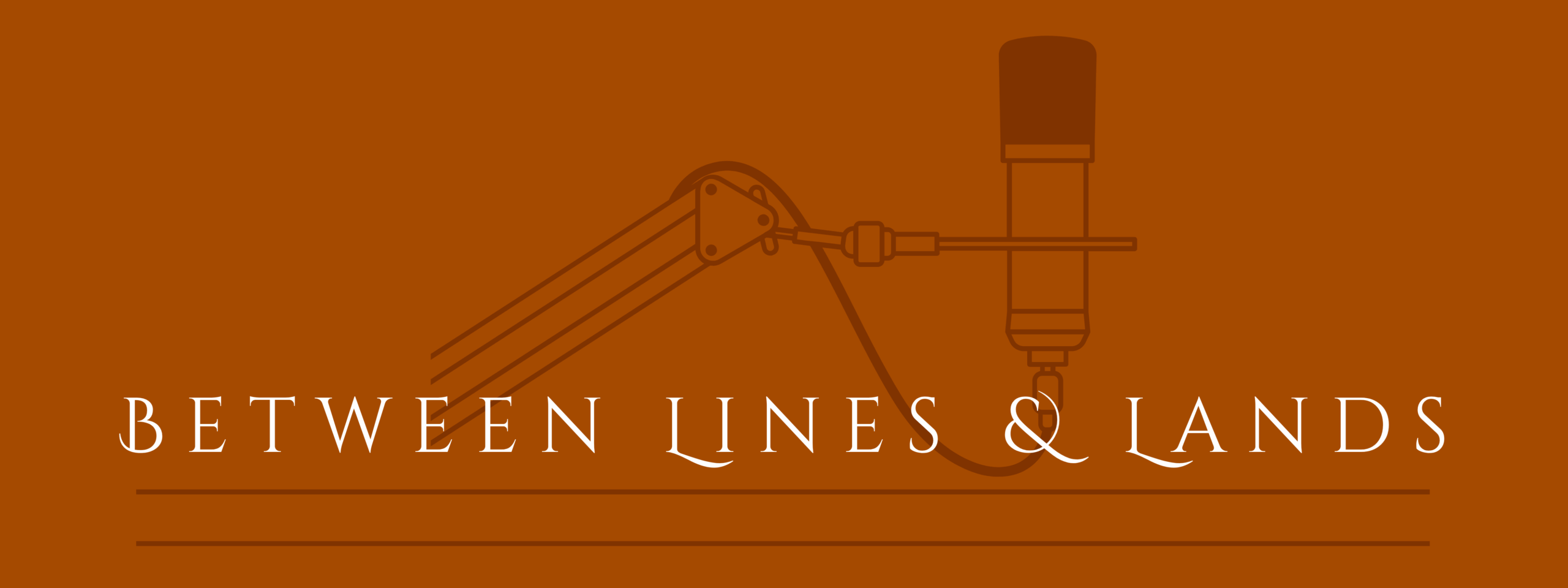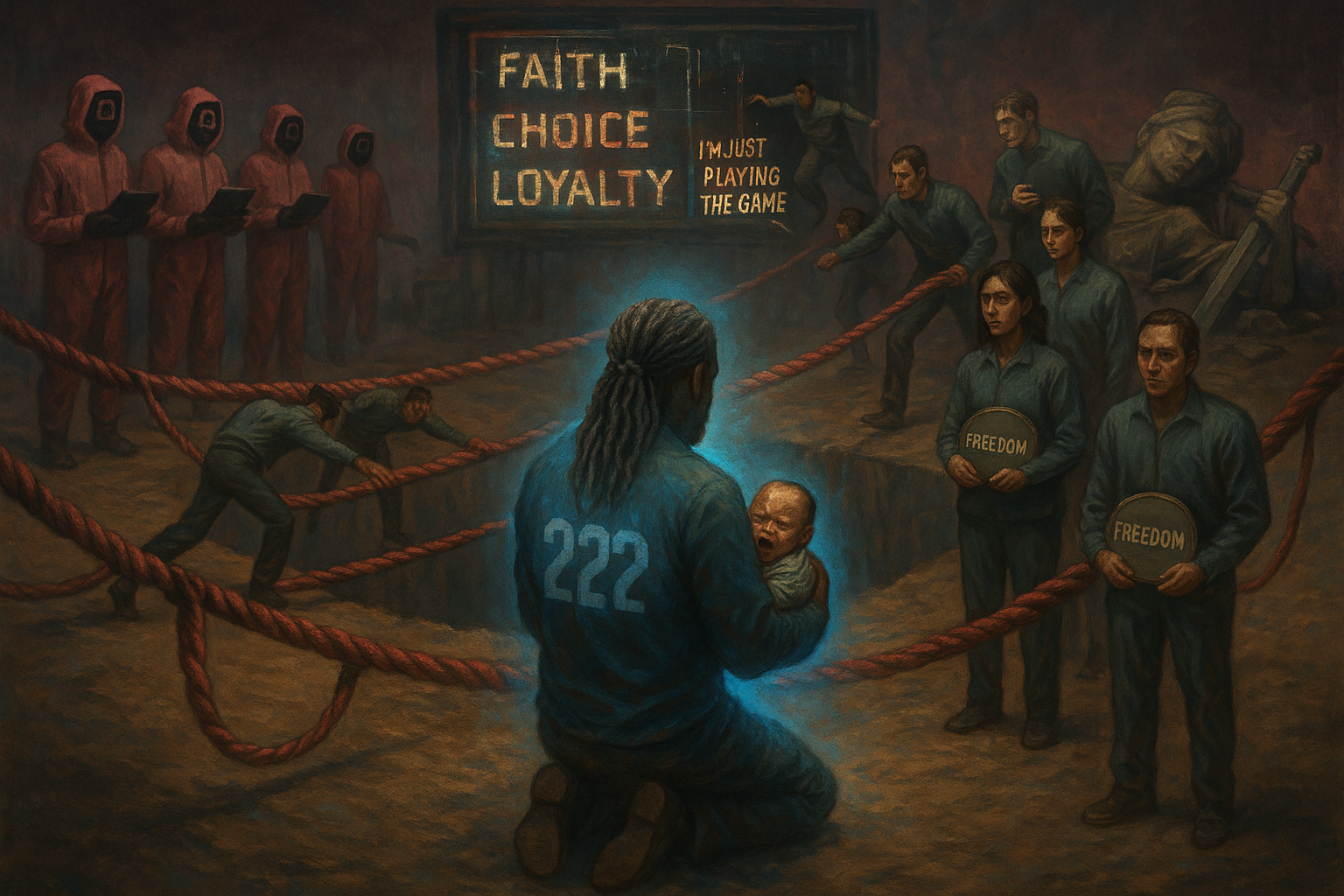Squid Game Season 3 and the Machinery of Manufactured Power
By Shakil Ahmad
(Part 3 of 3 in the series: The Game Is Rigged)
“I’m just playing the game.”
— Player 143, Season 3
📍 Where We Left Off
If Season 1 exposed the cruelty of survival under capitalism, and Season 2 showed how belief keeps us in the system even after we know the truth — then Season 3 confronts the final question:
Can you still have faith in people?
This season is no longer about shock. It’s about silence.
No longer about survival — but submission.
It’s not about breaking the rules. It’s about accepting them so fully that you enforce them yourself.
And what’s most haunting?
It feels familiar.
Season 3 is a philosophical mirror — not just of capitalism, but of us.
👩👧 The Mother Who Must Play
She’s just given birth.
She should be healing, resting, bonding.
Instead, she’s back in the game.
When asked why, she says:
- “I’ve come this far.”
- “I’m doing it for my child.”
- “I can’t waste the sacrifices already made.”
Her decision is framed as “choice,” but it’s actually a masterclass in coerced continuity.
This is the sunk cost fallacy in action — where past investment traps you in future pain.
Just like workers who stay in exploitative jobs.
Just like citizens who accept broken systems “for the greater good.”
As Ha-Joon Chang writes in Thing 13:
“People often continue destructive paths not because they believe in them, but because they’ve already committed too much.”
The mother doesn’t choose freely.
She chooses within a cage — and calls it responsibility.
🎲 The Last Game Is Never the Last
“One more game,” they’re told.
“One more chance to be free.”
But it never is.
This is capitalism’s most elegant illusion:
That you are always one choice away from winning.
One more grind.
One more degree.
One more sacrifice.
And then you’ll be free.
But the goalpost keeps moving. Because freedom is not the reward — it’s the bait.
And when you finally “win”?
The game doesn’t end.
You’re simply offered a new role — not as a player, but as an enforcer.
Just like Gi-hun.
Just like the Front Man.
Just like real-world survivors who rise up… only to gatekeep the very system that harmed them.
🍼The Baby and the Vote
A newborn inherits her mother’s player number — 222.
Now she’s technically “in the game.”
The group must vote whether she continues.
They say:
- “It’s not fair for a baby to inherit wealth.”
- “She can’t survive without her mother.”
- “We’re doing what’s best for her.”
But underneath all this?
It’s self-interest. Dressed up as morality.
They don’t fear for the baby — they fear losing their share.
Cruelty performed as care.
This is how real-world policy works:
- Immigration bans “to protect children.”
- Slashing welfare “to encourage responsibility.”
- Evictions “for community safety.”
What they’re really saying is: “Someone like that shouldn’t have what I’m fighting for.”
The baby must die — not because she threatens anyone.
But because her existence forces others to confront their own comfort.
🪢 The Jump Rope and the Justifier
One of the season’s sharpest metaphors is hidden in a children’s game.
A jump rope stretches across a pit.
Two players make it across.
Then one of them starts pushing others off.
When asked why, he says:
“I’m just playing the game.”
And that’s it. That’s the crux.
This is how cruelty becomes logic:
- The refugee who supports closing borders after getting through
- The poor person who opposes food stamps after earning stability
- The marginalized worker who now disciplines others
Not because they’re evil — but because the system taught them this:
“If you want to win, someone else must lose.”
This is what Ha-Joon Chang calls the internalization of market values —
where systems no longer need police or propaganda, because we’ve been trained to patrol each other.
🌫️ The Collapse of Rules
By the final episodes, nothing makes sense.
Rules contradict. Votes are voided. The game changes mid-match.
And that’s the point.
Systems don’t collapse because they break — they collapse when they no longer need rules.
They survive through belief. Through repetition. Through spectacle.
And when that no longer works?
They fall back on fear.
This is what Chang describes in Thing 16:
“Capitalism survives not because it’s perfect — but because every alternative has been discredited or destroyed.”
When people are too afraid to believe in anything else, they’ll believe in anything.
Even this.
🌱 Gi-hun’s Final Move: Compassion as Rebellion
In the last game, Gi-hun could have won.
Could have taken the prize.
Could have finally escaped.
But instead, he throws the game.
He saves the baby and her protector.
He chooses compassion — even though it costs him everything.
And in that moment, he does something the system cannot calculate:
He chooses something irrational. Something human.
Capitalism rewards efficiency. Strategy. Self-preservation.
But it cannot handle sacrifice that expects no return.
That’s the real glitch in the matrix.
Not cheating. Not resistance.
But empathy without transaction.
🧭 Final Thought: The Game Was Never Fair — But We Don’t Have to Play It
Season 3 doesn’t offer closure.
It offers clarity.
The game will always exist.
It will always adapt.
It will always offer one more round, one more promise, one more illusion of freedom.
But in its final moments, Squid Game leaves us with a truth too big to ignore:
The game only works if we keep playing.
And maybe — just maybe — we can stop.
🎧 Between Lines and Lands — The Story Behind the System
This blog is part of a series inspired by 23 Things They Don’t Tell You About Capitalism by Ha-Joon Chang — a book that unmasks the logic behind the world we live in.
In our podcast Between Lines and Lands, we don’t just review shows or read books.
We look between them — and ask what they reveal about how we live, suffer, and hope.
Because storytelling is power.
And refusing the script… is the beginning of freedom.
📌 Read the Full Series:
- The Game Is Rigged – Squid Game Season 1 and the Illusion of Freedom
- Even When You Know the Truth – Season 2 and the Trap of Belief
- You’re Here
🔗 Join the Resistance:
📘 Instagram: @linesandlands
🎙️ YouTube: Between Lines and Lands
🎥 TikTok: @linesandlands

